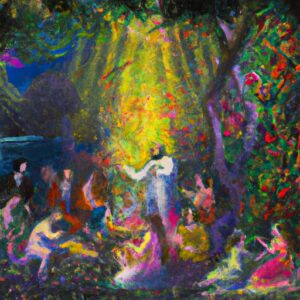Italian passato prossimo
Have a look at these two examples and try to find a difference:
Ieri ho visto un film bellissimo.
Yesterday I watched a beautiful film.
Ieri sono andata al cinema.
Yesterday I went to the cinema.
Well, as you can see in the examples above, we have two possible options to form the passato prossimo:
- Avere + past participle (e.g.: ho visto)
- Essere + past participle (e.g.: sono andata)
In this specific case, avere and essere are called “auxiliary verbs”. Auxiliary verbs help in making up some particular tenses but don’t carry any meaning.
Movement verbs in Italian
Let’s have a look at a list of the most common movement verbs in Italian:
- Andare: to go
- Arrivare: to arrive
- Cadere: to fall
- Correre: to run
- Entrare: to enter
- Partire: to leave
- Salire: to go up
- Saltare: to jump
- Scappare: to run away
- Scendere: to go down
- Venire: to come
- Uscire: to go out
Past tense of movement verbs
Italian movement verbs are special for two reasons.
First of all, these verbs use the verb essere in the passato prossimo, unlike many other verbs.
Also, the past participle (e.g. andato, partito, salito) behaves like an adjective.
What do we mean by this? Their ending changes depending on the number and gender of the noun they’re referring to.
Have a look at the four examples below and see how the past participle changes:
Laura è andata al mare.
Laura went to the beach.
Giacomo è partito presto.
Giacomo left early.
I bambini sono scappati.
The kids run away.
Le ragazze sono uscite.
The girls went out.
Passato prossimo: examples
Let’s now look at some more examples:
I miei genitori sono appena arrivati.
My parents have just arrived.
Michele è corso a vedere chi era.
Michele ran to see who it was.
Monica e Fiorina sono salite al secondo piano e sono scese immediatamente.
Monica and Fiorina went up to the second floor and went down immediately.
Teresa non è venuta alla cena.
Teresa didn’t come to dinner.










9 Responses
Great. Glad I was correct. As they say: “Even a broken clock is correct, twice a day.”
To clarify, I am attaching a screen capture of the grammar section in question which is titled Passato Remoto. But, all the example sentences beneath that title are Passato Prossimo, consistent with what the grammar section is dealing with. So it would seem that the title “Passato Remoto” should be replaced by “Passato Prossimo”.
image.png
Ciao @donald-bell!
Thank you for clarifying 😊
You were right and we corrected the title on the Grammar lesson.
Scusa, ma il titolo “Passato Remoto: examples” (nella sezione grammaticale) no apparare corretto per colpa di tutti gli esampi phrasi utilizzo il Passato Prossima, no,……. come:
“I miei genitori sono appena arrivati.”
“Michele e’ corso a vedere chi era.”
eccetera…
Magari il titolo dovrebbe essere “Passato prossimo””Passato Prossimo”.
(Is ‘dovreebe essere’ correct for ‘should be’ ? … grazie)
Ciao @donald-bell!
Puoi rispiegare perché pensi che il titolo “Passato Prossimo: examples” nella Grammar note non è corretto? Non ho capito bene cosa intendi comunicare.
😊
Per quanto ne so, ci sono due eccezioni, camminare e viaggiare. Questi due verbi formano passato prossimo con avere. Vero?
Ciao @ervin-rakonczai!
Si, hai ragione. I verbi camminare e viaggiare formano il Passato Prossimo con l’ausiliare avere.
Very easy but several mistakes in the English trabslation. For instance in English “you” can refer to one person or several persons depending on whom you are addressing.
Also the simple past of the verb run in English is ran. Maria ran
etc.
L’ho corretto. Grazie!